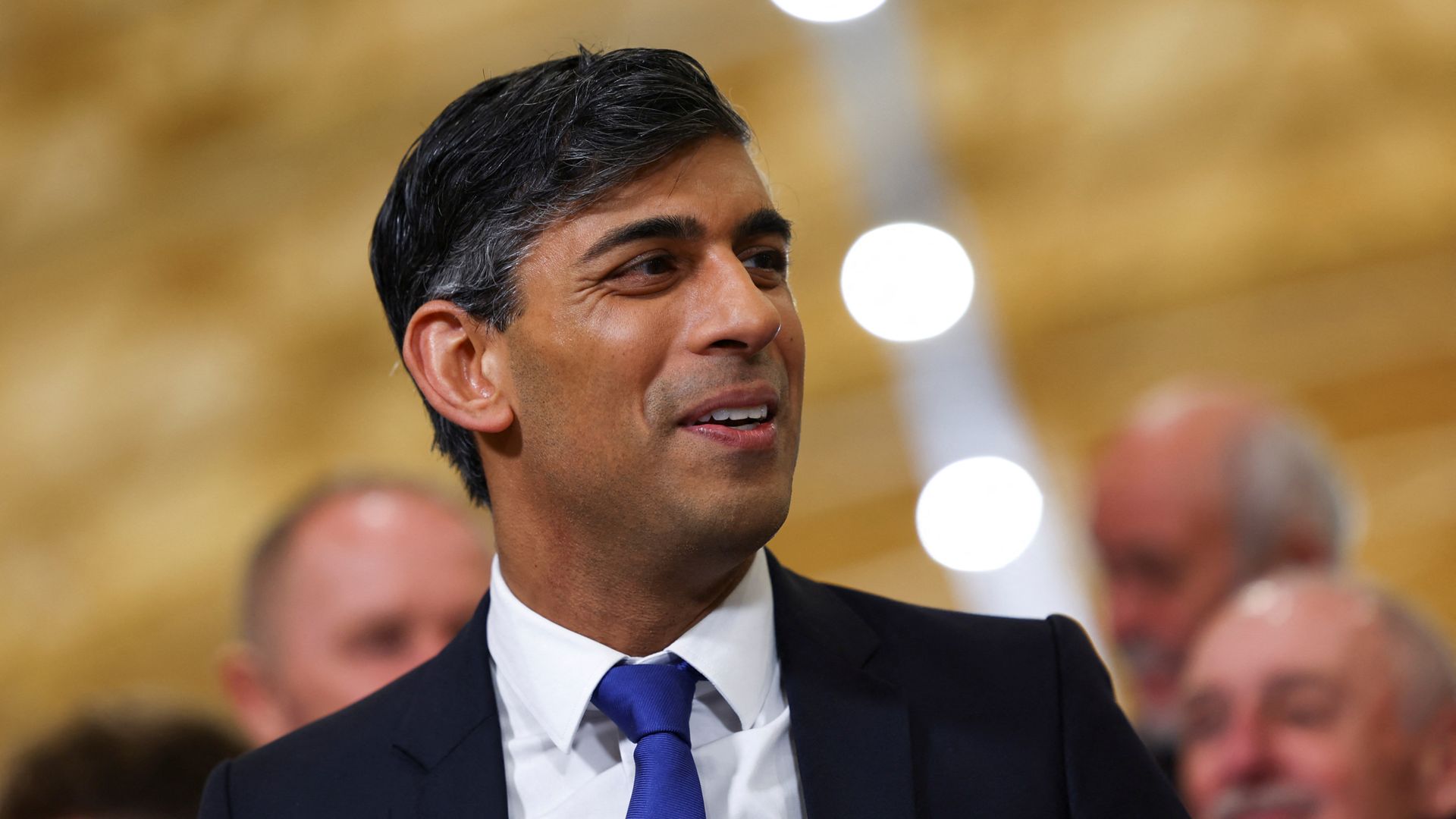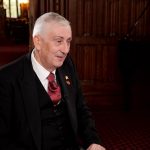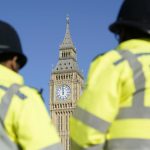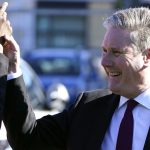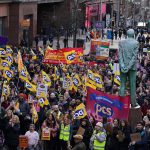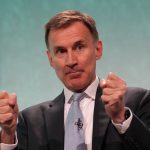When Rishi Sunak moved into Number 10 two years ago, he was described as Britain’s first hedge fund prime minister.
Sky’s Economics and Data Editor Ed Conway wrote at the time that Mr Sunak’s background makes for a CV unlike almost every other resident of Downing Street.
It was a career that started aged 21 at Goldman Sachs and saw him co-found a firm registered in the Cayman Islands.
But it is Mr Sunak’s three years at hedge fund TCI straddling the 2008 financial crash that is now being revisited.
Both the Conservatives and Labour have been releasing “attack ad” videos in the general election campaign – and the prime minister’s financial background is the subject of Labour’s latest one.
In a play on The Big Short scene in which Margot Robbie explains mortgage bonds while sipping champagne in a bubble bath, comedian Jon Richardson examines Mr Sunak’s career as he drinks beer in the bath.
He takes viewers back to 2007, when Mr Sunak was a partner at TCI, a hedge fund known for taking an “activist” shareholder approach.
The fund bought a stake in Dutch bank ABN Amro – 2% according to Labour’s video and “more than 1%” according to a 2007 letter from the fund.
Despite what may seem a small stake, it used its influence to demand the bank sold up – ultimately to the Royal Bank of Scotland (RBS).
“RBS paid billions for the bank – and in the process inherited a shedload more sub-prime mortgage assets,” Richardson says.
With RBS saddled with debt, the deal contributed to its near collapse and meant it required a taxpayer bailout to the tune of £45.5bn.
Richardson claims Mr Sunak “made millions from a deal that helped trigger the financial crash – and all at the expense of the British taxpayer”.
The Conservatives said the video was “not correct”, describing it as a “misleading piece of Labour Party propaganda”.
With Labour telling one story and the Conservatives another, Sky News looked at publicly available records – this is what they show.
The hedge fund made almost £900m profit in the two years leading up to the financial crisis.
According to Companies House documents, it recorded £321m in profits in the year ending August 2007, Mr Sunak’s first year as a partner, and £555m the following year.
Members of the hedge fund team received £5m each on average for the two-year period.
Mr Sunak left TCI in 2009, at the age of 29. He was elected MP for Richmond (Yorks) in 2015.
What is TCI?
TCI stands for The Children’s Investment Fund and was set up by billionaire Sir Chris Hohn.
Both the founder and the company itself are renowned for their secrecy.
TCI is known for being aggressive and placing very big bets in a limited number of companies.
In 2009, Sir Chris admitted to a select committee that TCI had bet against British banks during the crash, but said it was “relatively minor”.
TCI was one of the first hedge funds to donate a portion of its fees to charity, and supports charities tackling poverty in Africa and Asia through The Children’s Investment Fund Foundation.
It severed formal connections with the foundation about a decade ago but continues to support it.
Sunak’s sleepless nights during the 2008 crash
In a 2019 interview with the BBC’s Nick Robinson, Mr Sunak talked about working in banking during the financial crisis.
“Living it was stressful,” he said.
“You are responsible for people’s savings and when that’s all kind of evaporating in front of your eyes, that’s quite a stressful thing to live through.”
The stress made for some sleepless nights, he said.
It was an “extraordinary time”, he said.
“This hadn’t happened since the 1930s, this scale of dislocation of financial markets. The speed of what was happening, the scale of what was happening was unprecedented.”
From Southhampton to California via Oxford
Born in 1980 in Southampton, Mr Sunak is the eldest of three children to his parents of Punjabi descent.
Mr Sunak’s father was a family doctor and his mother ran a pharmacy, where he helped her with the books.
He attended England’s oldest public school Winchester College where he became the first Indian-origin head boy and was editor of the school paper.
He has since said his experience at the boarding school was “intellectually transforming” and put him “on a different trajectory”.
Mr Sunak went on to study philosophy, politics and economics at Lincoln College at Oxford University, where he obtained a first-class degree.
It was the investment club rather than student politics that occupied his time when he was there, with his sights set early on a career in investment.
He was said to have already had job offers from investment banks under his belt while still in his second year at Oxford.
Mr Sunak worked for the investment bank Goldman Sachs as an analyst after graduating in 2001.
He then completed an MBA at Stanford University in California, where he met his future wife, Akshata Murty.
Read more on Sky News:
The 12 big Tory names at risk of losing their seats
General Election poll tracker
A hedge fund registered in the Cayman Islands
Mr Sunak left TCI in 2009 to cofound a hedge fund, Theleme Partners.
During the 2022 Tory leadership race, Sky News’ Kay Burley quizzed Mr Sunak on whether he had personally benefitted from tax havens.
His quick answer was “no”.
She went on to ask: “A venture capital firm Theleme Partners you co-founded was registered in the Cayman Islands, so just to clarify, did you benefit?”
Mr Sunak replied: “I have never ever benefited and have paid full, normal taxes wherever I’ve lived.
“The bit in the Cayman Islands you’re referring to I have nothing to do with. I happen to work with a company that has multiple offices all around the world, but that’s not my responsibility.”
Burley pressed him on whether he had been paid by the offshore company, which Mr Sunak again denied.
👉 Tap here to follow Electoral Dysfunction wherever you get your podcasts 👈
Conservatives’ response to Labour’s video
In response to Labour’s video, a Conservative Party spokesperson said: “This is not correct.
“This video is a deeply sinister and misleading piece of Labour Party propaganda that reveals their anti-business colours.”
They did not answer questions about whether Mr Sunak was directly involved in the deal that saw ABN Amro sold to RBS, or whether he had any knowledge of the deal.
